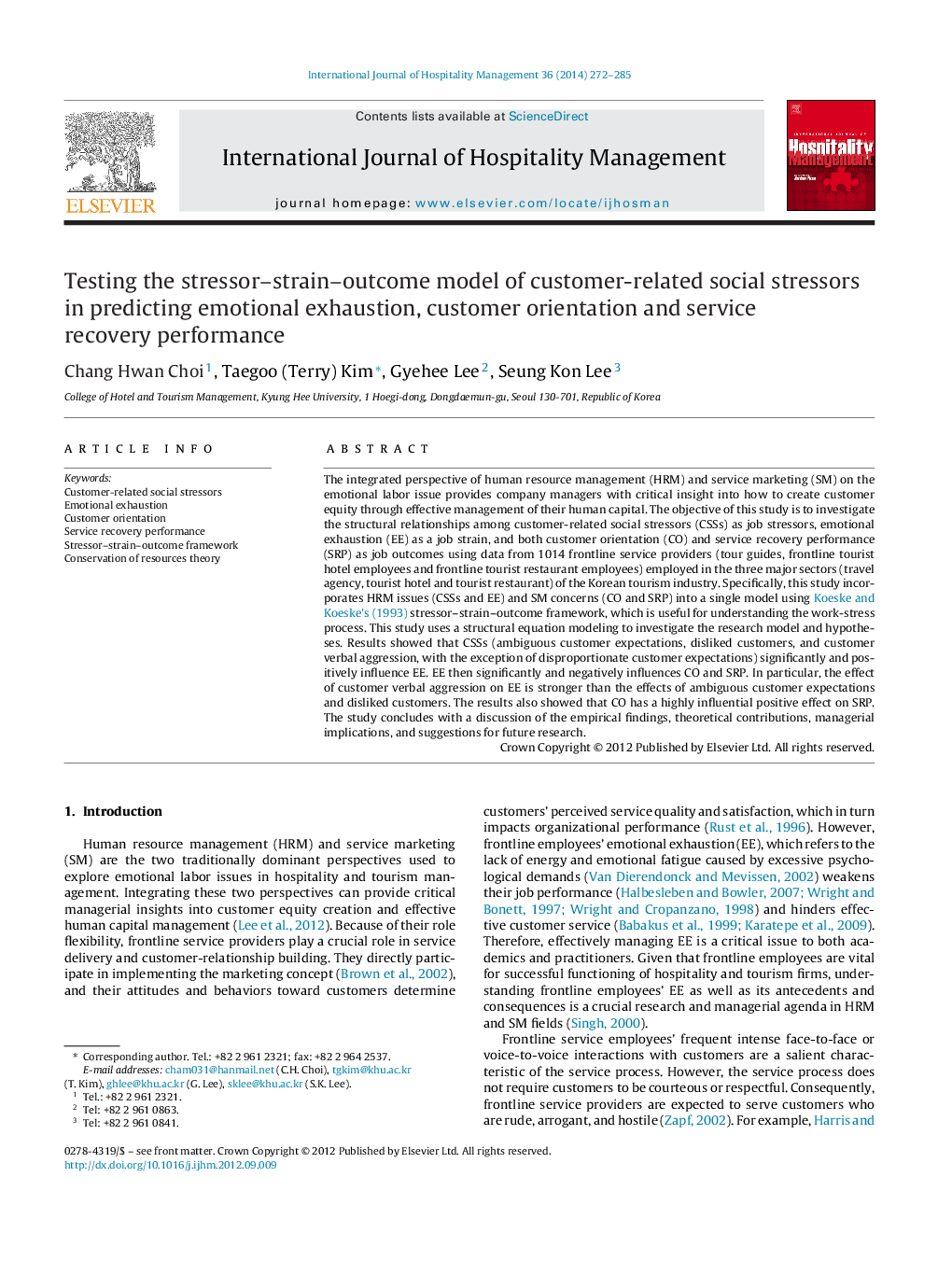| کد مقاله | کد نشریه | سال انتشار | مقاله انگلیسی | نسخه تمام متن |
|---|---|---|---|---|
| 1009526 | 1482501 | 2014 | 14 صفحه PDF | دانلود رایگان |
The integrated perspective of human resource management (HRM) and service marketing (SM) on the emotional labor issue provides company managers with critical insight into how to create customer equity through effective management of their human capital. The objective of this study is to investigate the structural relationships among customer-related social stressors (CSSs) as job stressors, emotional exhaustion (EE) as a job strain, and both customer orientation (CO) and service recovery performance (SRP) as job outcomes using data from 1014 frontline service providers (tour guides, frontline tourist hotel employees and frontline tourist restaurant employees) employed in the three major sectors (travel agency, tourist hotel and tourist restaurant) of the Korean tourism industry. Specifically, this study incorporates HRM issues (CSSs and EE) and SM concerns (CO and SRP) into a single model using Koeske and Koeske's (1993) stressor–strain–outcome framework, which is useful for understanding the work-stress process. This study uses a structural equation modeling to investigate the research model and hypotheses. Results showed that CSSs (ambiguous customer expectations, disliked customers, and customer verbal aggression, with the exception of disproportionate customer expectations) significantly and positively influence EE. EE then significantly and negatively influences CO and SRP. In particular, the effect of customer verbal aggression on EE is stronger than the effects of ambiguous customer expectations and disliked customers. The results also showed that CO has a highly influential positive effect on SRP. The study concludes with a discussion of the empirical findings, theoretical contributions, managerial implications, and suggestions for future research.
Journal: International Journal of Hospitality Management - Volume 36, January 2014, Pages 272–285
